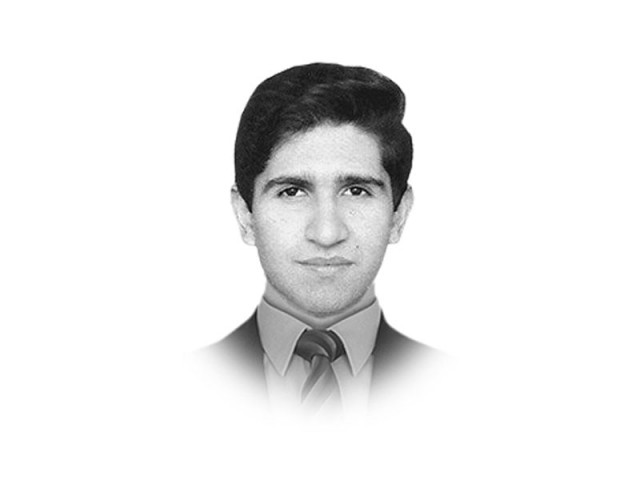Talking peace
Road ahead needs to be paved with sound policies, failing which, one would expect problems of militancy to continue.

The writer is a PhD in conflict studies and an independent security analyst. He has also taught at the University of Central Lancashire, UK
The Lal Masjid episode was a militant trial run for the rest of the country, which indicated to these militant groups that they can impose their version of Sharia, by force, in society. Since then, their force has been countered effectively by the army, but now the lack of social justice has to be countered by the civilian government. It is inarguable that there are undercurrents of resentment against social injustice. In Pakistan, it is difficult to see how militancy can be curbed in the absence of distributive social justice. One alternative for a cross border solution to the problem is to recognise Pashtuns as the majority population in Afghanistan and recognise the Taliban as a party that can ensure peace in the region. Yet, for this to be acceptable to other Afghan parties, the Taliban must morph to become a purely Afghan Pashtun movement rather than a nationalist Pashtun-based tribal insurgency with roots in Pakistan or a radical Islamist movement with al Qaeda linkages. Any semblance of pan-Islamist nationalism on the part of the Taliban, as well as contacts with al Qaeda, would not establish their credentials as a Pashtun nationalist movement. However, this is a catch-22 situation; the Taliban’s fundamental condition for negotiations has persistently been the withdrawal of all foreign forces from Afghanistan, which may not happen as long as religious linkages are demonstrated in the region. The Americans have indicated that they would leave a footprint in the region even after withdrawal, which may again become a bone of contention.
It is important to understand that there is still a difference between al Qaeda and the Taliban, although they tend to come closer together under the duress of aggression in meeting the common enemy: the US. Even though it is undeniable that there is a religious element present, the Taliban were and still are a nationalist movement like Hamas and Hezbollah but unlike al Qaeda. Of course, they have the capability (which they have demonstrated) to develop more extensive transnational terror links, but that will depend on the trajectory of circumstances. Breaking existing bonds is certainly problematic.
Another strategic necessity is to address the grievances of Fata, where only three per cent of women receive education and there is one doctor for every 8,000 people. Operations are a viable option as initial counter-insurgency efforts, but unless they are supplemented by huge socioeconomic investments in rehabilitating the area, peace will not return, as Afghanistan has demonstrated. Fata also needs the healing touch of democracy and just laws; the draconian Frontier Crimes Regulation (FCR) needs to leave or at least be drastically modified. Only a democratically-elected government, reflecting the consensus of the nation, can achieve those ends and this should be a priority of the new government.
The time is also ripe for a counter-insurgency strategy that incorporates local lashkars as local militias, which can be the first line of defence in a village. The issue of aid and development needs to be resolved as well. Fata’s laws and infrastructure need to be normalised by the infusion of a slow but comprehensive aid package dealing with development issues such as education and jobs. This requires transparency and a genuine commitment to this area. With the Pakistani economy in a perilous state, Pakistan needs a bailout package but this should come with strings so that it caters only to Fata and is not squandered. Pakistan is a resilient state and will overcome its problems eventually, but the road ahead needs to be paved with the soundest of policies, failing which, one would expect to see the problems of militancy continuing in the country.
Published in The Express Tribune, May 19th, 2013.















COMMENTS
Comments are moderated and generally will be posted if they are on-topic and not abusive.
For more information, please see our Comments FAQ